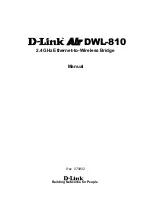
( D R A F T L A B E L ) A L P H A D R A F T - C I S C O C O N F I D E N T I A L
ix
Cisco 7206 Installation and Configuration Guide
OL-5102-02
Preface
Document Conventions
Document Conventions
This publication uses the following conventions:
Examples that contain system prompts denote interactive sessions, indicating the commands that you
should enter at the prompt. The system prompt indicates the current level of the EXEC command
interpreter. For example, the prompt
router>
indicates that you should be at the user level, and the
prompt
router#
indicates that you should be at the privileged level. Access to the privileged level usually
requires a password. Refer to the related software configuration and reference documentation listed in
the
“Related Documentation” section on page xiv
for additional information.
Other command descriptions use the following conventions:
Screen examples use the following conventions:
Caution
Means reader be careful. You are capable of doing something that might result in equipment damage or
loss of data.
Note
Means reader take note. Notes contain helpful suggestions or references to materials not contained in
this manual.
boldface font
Commands and keywords are in boldface.
italic font
Arguments for which you supply values are in italic font.
[ ]
Elements in square brackets ([ ]) are optional.
{ x | y | z}
Alternative but required keywords are grouped in braces ({ }) and
separated by vertical bars (|).
screen
font
Terminal sessions and sample console screen displays are in
screen
font.
boldface screen
font
Information you enter is in
boldface screen
font.
< >
Nonprinting characters, such as passwords, are in angle brackets
(< >).
[ ]
Default responses to system prompts are in square brackets ([ ]).
^
The symbol ^ represents the key labeled Control. For example, the
key combination ^z means hold down the Control key while you
press the z key.
(!)
Exclamation points (!) at the beginning of a line indicate a comment
line.










































